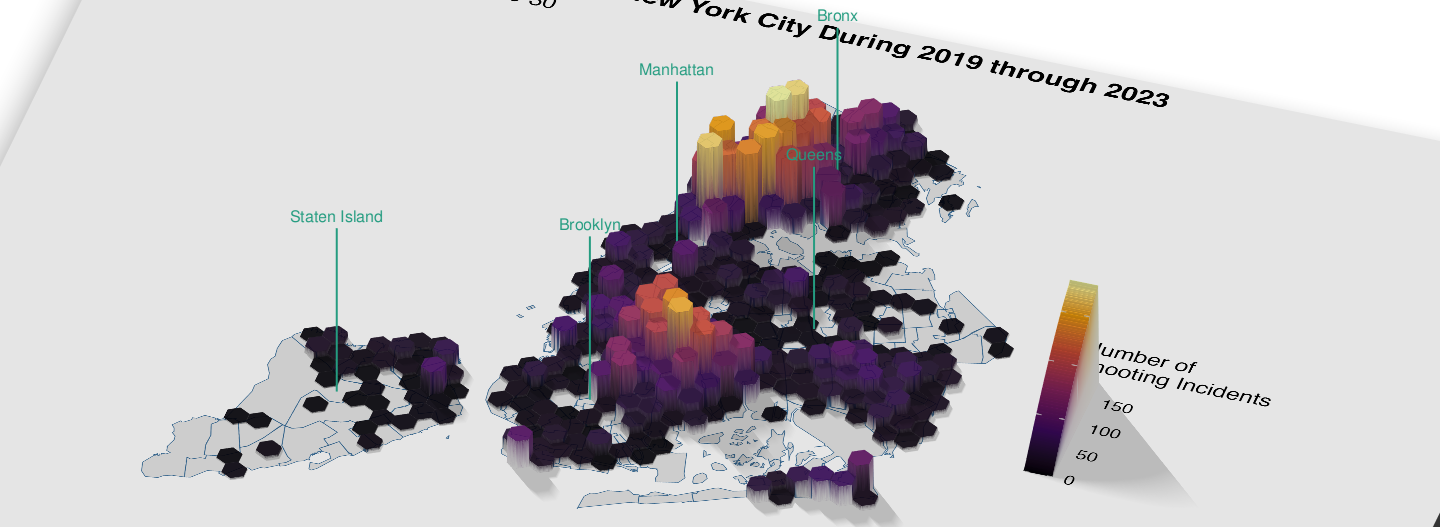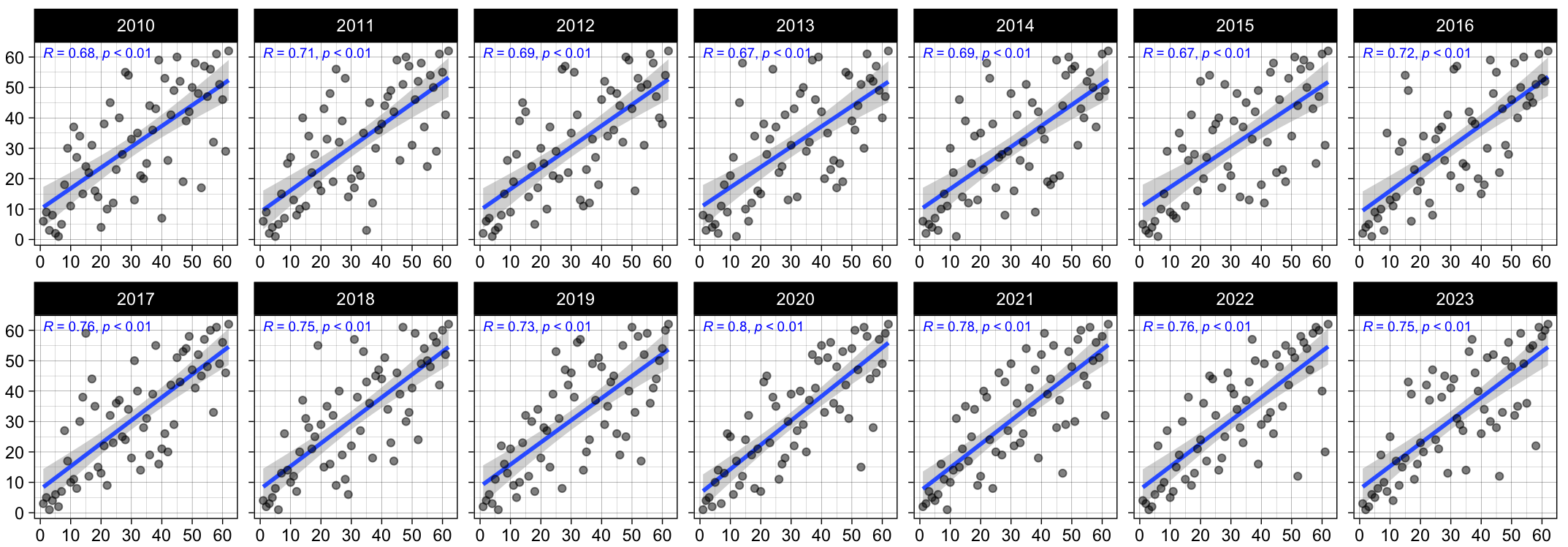
Public Health


New York State Food Establishment Inspection Maps
August 16, 2025
food safety environemental health New York State Public Health Restaurant Inspections GIS
Shooting Incidents in New York City
July 29, 2025
gun violence GIS epidemiology NYC Public Health Crime TrendsNew York Flu Watch: Real-Time Tracking and Analysis of Influenza Data
July 9, 2025
communicable diseases data visualization epidemiology influenza New York State Public Health
Using Three-Dimensional Mapping to Visualize Five Years of Shooting Incidents in New York City
August 20, 2024
Gun Violence New York City Three-dimensional mapping Public Health GIS epidemiology
Birth Defect Trends in New York State
December 31, 2024
birth defects maternal and child health epidemiology public health New York State disease incidence epidemiologyNew York Hospital Bed Capacity
July 3, 2025
health care delivery Hospitals New York City New York State Public Health Preparedness
County Health Rankings Factor vs Outcome Ranks
September 3, 2024
Community Health Public Health Social Determinants variation Correlation AnalysisUnited States Weekly Death by Select Causes (2014 to Present)
November 14, 2023
data visualization epidemiology United States Public HealthNew York Weekly Death by Select Causes (2014 to Present)
November 14, 2023
data visualization epidemiology New York State Public HealthDrPH student Isaac Michaels discusses the ongoing challenges of the COVID-19 pandemic
April 24, 2023
COVID-19 Public health Data analysis Vaccinations Health equity Air quality census
New York State's public health workforce suffering from long-term staffing shortages, study finds
October 20, 2022
Public Health local health departments public health workforce New York State Public Health Practice Public Health Infrastructure
Research Team Uncovers Disparities in Internet Access and COVID-19 Vaccination in New York City
August 26, 2021
COVID-19 epidemiology New York City GIS Public Health Social Determinants immunization
Tobacco Availability and Advertising Decrease in Albany, NY Food Stores
May 12, 2016
Albany NY Tobacco Control environemental health Public Health Social Determinants epidemiology Community Health chronic disease
Study Examines the Impact of Food Shopping Venues and Neighborhood Food Environment on BMI in Urban Adults
April 16, 2016
Community Health chronic disease environemental health epidemiology Health Disparities Public Health
New Study Finds Travel Distance Poses Barrier to Participation in Diabetes Intervention Programs for Guyanese Immigrants at Faith-Based Organizations
May 8, 2014
Public Health GIS chronic disease Diabetes data visualization environment epidemiology Social Determinants